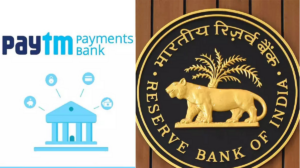As India strides into a new phase of economic growth in 2025, the government has unveiled a series of progressive schemes aimed at boosting development, entrepreneurship, manufacturing, infrastructure, and investment opportunities. These initiatives are not just beneficial for citizens – they also present a goldmine possibilities for investors seeking smart, strategic entry points into high-growth sectors.
From affordable housing to semiconductors, from regional connectivity to energy reforms, the 2025 government schemes align with the larger vision of a self-reliant India. For investors – both retail and institutional – understanding these schemes is essential to capitalizing on upcoming opportunities and aligning their portfolios with national development goals.
Here are the top new government schemes in 2025 that every investor should keep an eye on:
1. SWAMIH Fund II – Affordable Housing Boost
The Special Window for Affordable and Mid-Income Housing (SWAMIH) Fund enters its second phase with ₹15,000 crore dedicated to completing stalled projects. With urban housing demand rising, this presents major investment opportunities in real estate, construction finance, and allied industries.
2. Scheme for First-Time Entrepreneurs
To foster inclusive entrepreneurship, the government will provide loan of up to ₹2 crore to 5 lakh first-time women, SC, and ST entrepreneurs over the next five tears. This will spur growth in small businesses and startups – creating funding and incubation opportunities for investors and venture capitalists.
3. Footwear & Leather Sector Boost
To enhance the productivity and competitiveness of the footwear and leather sectors, the government has introduced a focus product scheme. It is expected to facilitate employment for 22 lakh individuals, generate a turnover of ₹4 lakh crore, and boost exports worth over V1.1 lakh crore. Investors can consider opportunities in manufacturing units and export-oriented businesses within these sectors.
4. Nuclear Energy Sector Liberalization
The government is considering allowing up to 49% Foreign Direct Investment (FDI) in the nuclear sector. This phased liberalization could open the doors for private and global investment in a traditionally closed, high potential area – especially relevant for long-term infrastructure and energy investors.
5. Semiconductor Manufacturing – HCL-Foxconn JV
With ₹3706 crore invested in a semiconductor fab plant near Jewar airport, this joint venture between HCL and Foxconn reflects India’s push toward electronics self-reliance. Investors
should track developments in the semiconductor supply chain, from chip design to logistics and automation.
6. Mera Ghar, Mera Adhikar – Maharashtra’s Affordable Housing Scheme
The Maharashtra government has launched the Mera Ghar, Mera Adhikar policy, aiming to construct 35 lakh homes for economically weaker sections and low-income groups by 2030. With an investment of ₹70,000 crore and a dedicated fund of ₹20,000 crore, this policy offers avenues for investors in affordable housing projects and associated infrastructure.
7. Invest UP – Railways MoU for Logistics Infrastructure
To bolster industrial and logistics infrastructure, Invest UP has signed a Memorandum of Understanding with the Northern Railway’s Lucknow division. The agreement focuses on developing logistics hubs, dry ports, and multimodal parks, with provisions for offering railway land to investors at concessional lease rates. This initiative opens up investment prospects in logistics and warehousing sectors
8. Modified UDAN Scheme – Boost to Regional Air Travel
Building on the success of the UDAN (Ude Desh ka Aam Nagrik) scheme, the government plans to launch a modified version to enhance regional connectivity to 120 new destinations, aiming to carry 4 crore passengers in the next 10 years. The scheme will also support helipads and smaller airports in hilly and north-eastern regions, presenting investment opportunities in regional aviation and related infrastructure.
Conclusion
India’s 2025 development roadmap is deeply tied to strategic investments in infrastructure, energy, entrepreneurship, and innovation. For forward-thinking investors, these government schemes aren’t just policies – they’re pathways to future-proof portfolios. By aligning with national priorities, you not only boost your returns but also contribute to India’s economic resurgence.


